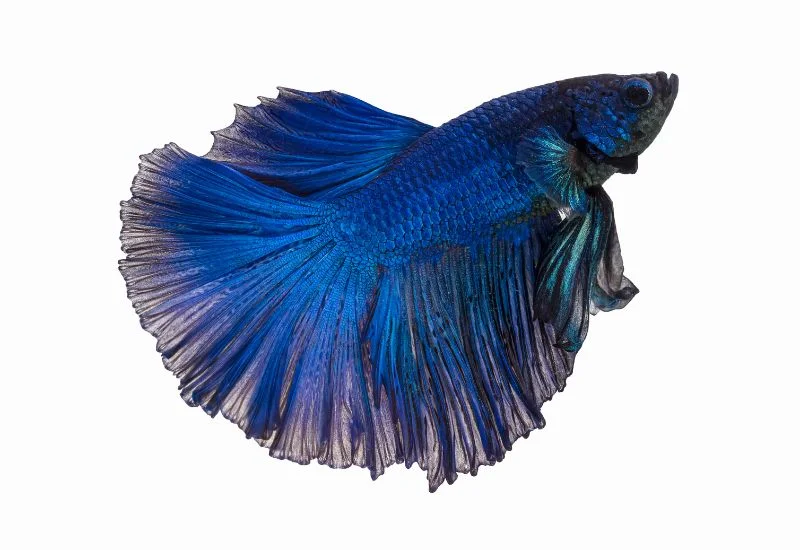Betta fish are common fish species among others because of their huge fins and vibrant colors. Understanding your fish’s behavior is very important.
As an aquaristic, you need to know the behavior pattern of your fish. The behavior shows if your fish is sleeping, or your fish is oversleeping, or there could be sleep deprivation. The oversleeping of the fish can be a sign of illness. Here is the guide that demonstrates the sleeping pattern of betta fish.
Signs that Your Fish is Sleeping
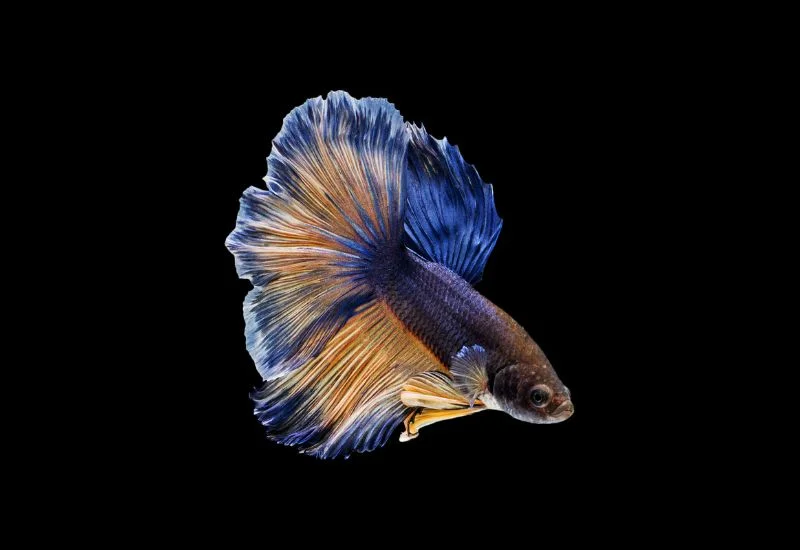
Betta fish may not sleep like other animals, but fish take their sleep to maintain their health. Here is a list of signs that show your fish is sleeping:
Gill Flaring
The gill flaring of the betta fish can indicate several things. The fish get oxygen through their gills. The movement can be a sign of aggression due to territorial issues. Betta does gill movements to push off the predators because that makes them look extensive. The other reason for gill movement can be that your fish is sleeping. When their gill movement is reduced or not happening, your fish is sleeping.
Slow Breathing
Along with reducing gill flaring when your fish is sleeping, the breathing rate slows down as well. It’s hard to check the breathing rate of your fish. The gill flaring can indicate a low breathing rate, which is a sign that your fish is sleeping.
Less Color Vibrancy
The color change of your fish can tell several reasons but one reason could be that your fish is sleeping. It is famous for its beautiful and vibrant colors. When fish sleep, their color may look duller, which is noticeable.
Low Response Rate
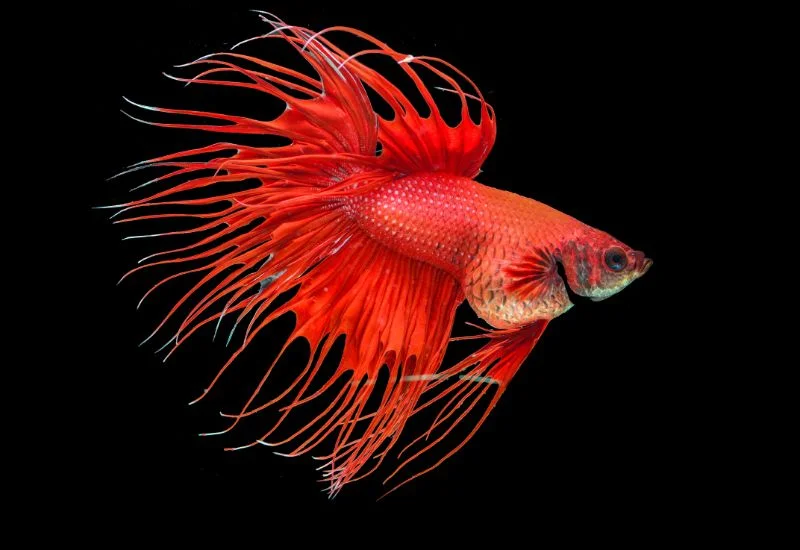
When your fish is sleeping, their response rate is reduced. The fish look like daydreaming or zone out. When fish are sleeping, they do not respond to movements around them and sometimes to even food.
Slow Fins Movement
The other sign through which you can tell your fish is sleeping is the less movement of their fins. You can tell the normal movement of their fins and tails. The pectoral fins are most active because fish use them to swim. When there is low movement in the fins, and they are not flared, that is a sign that your fish is sleeping.
Resting Position
While sleeping, some betta fish float on the surface, and some secure resting spots. The fish spotted a place in the substrate of the aquarium. Some betta fish can be found on the leaves of a plant. In the wild, fish call it nesting. They sleep under the surface of the water on a plant’s leaves so they can have a quick excess of oxygen. The betta nest is available in the market. You can buy one and place it near the surface.
Sleeping Time
The betta fish is more active during the day and rests at night. The cycle of day and night is significant for them. At night, you can see reduced activity or lethargic behavior in your fish. This is the sign that your fish is sleeping.
Reasons For Increased Sleep in Betta
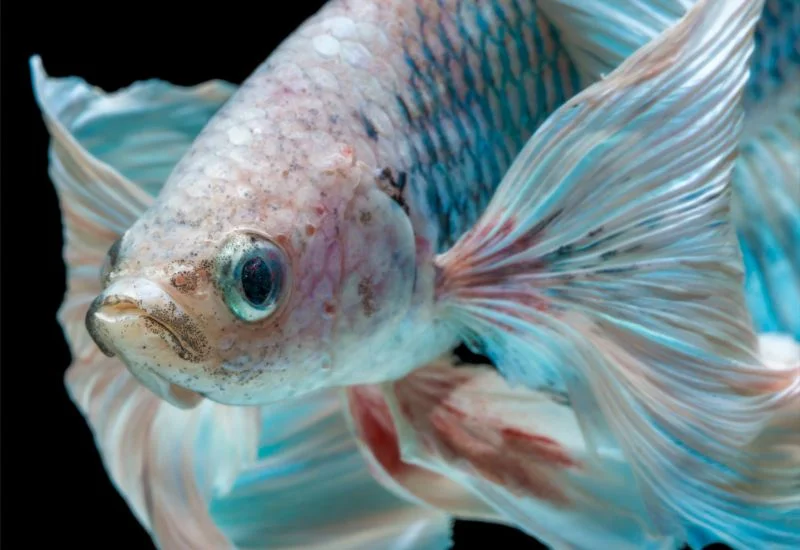
There is no sleep limit for Betta, but some will thrive on less sleep, while some will be lazy or lethargic. Here is the reason that could be the cause of more sleeping your Betta:
Boring Decoration
One reason for excessive sleep can be boredom. Your tank could be too small for fish to explore. Betta fish need at least 5 gallons of aquarium. Some aquariums use fish mirrors and toys so their fish do not get bored.
Tank is Dark
The other reason is the darkness in the tank. Fish need a night cycle to rest as they are more active in the day. They need 8 to 9 hours of rest time. Not providing them enough day time can cause more sleep and lazy behavior.
Temperature of the Tank
When the water temperature is not set to the required parameters, it can make your fish sleepy and lethargic. Make sure to check the water temperature of the tank to ensure right water parameters.
Sick Fish
More sleep can be a cause of illness. When Betta feels unwell, all the fish want to do is rest. You can look for signs of illness in the physical appearance of the fish, along with more sleep. You can look for:
- Fin rot
- Swelling on abdominal
- Eye cloud
- Dropsy
- ICH
Age of the Fish
The other reason for more sleep can be the old age of your fish. More sleeping in old age in Betta is common. Typically, Betta lives for 2 to 3 years. They can live a little longer in an ideal environment.
Reason For Why Your Fish is Not Sleeping
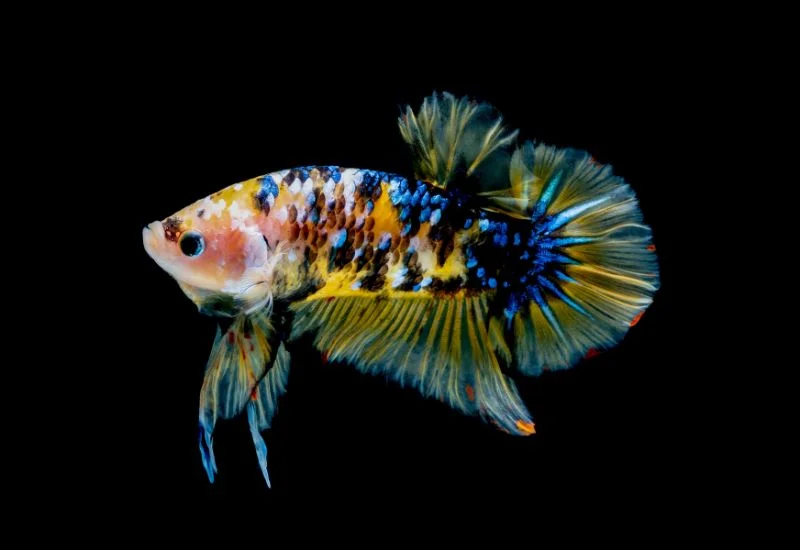
Here are some reasons why your fish is not sleeping:
- The first reason why your fish is not sleeping can be the tank mates
- Betta fish is aggressive due to territorial issues. Other aggressive fish can cause stress and injury to the fish. That can cause sleep deprivation
- Betta fish is more active during the day and lazy at night
- Fish use nighttime rest. The other reason for not having proper sleep is too much light in the tank
- Too much light can disrupt your fish’s sleep
How to Control Oversleeping
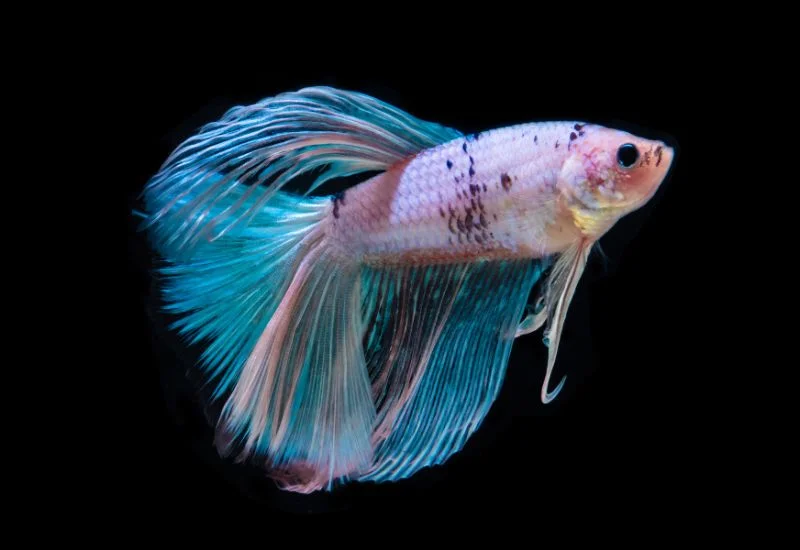
There are several points to consider to stop oversleeping of your fish:
- Betta fish stay in warm waters. The change in the temperature of water can be a reason
- Check the water temperature with a thermometer; use the digital one for good accuracy
- If the water temperature is appropriate, then check the quality of the fish’s food
- Check the food container to see if it is six months old and if the vitamin C component is severely compromised
- If the environment and food are good, then your fish can be sick, which causes oversleeping; take your fish to the veterinarian
Conclusion
Betta fish take rest as other animals do. The sleeping pattern can be different because fish do not have eyelids so, when they are asleep their eyes are still wide open. We can check through different signs if your fish is sleeping. The gill movement, less response to movement around the fish, and laying on the leaves can be indicators that your fish is sleeping.
Fish need 8 to 9 hours of rest. Betta fish are energetic during the day as compared to night. Try to maintain the cycle of day and night to provide good sleep to your fish. Monitor the sleeping habits. Excess sleep can be the reason for sickness, changes in water conditions, or changes in food quality. If you find any of these issues, address them to ensure a happy and healthy life for your fish.
